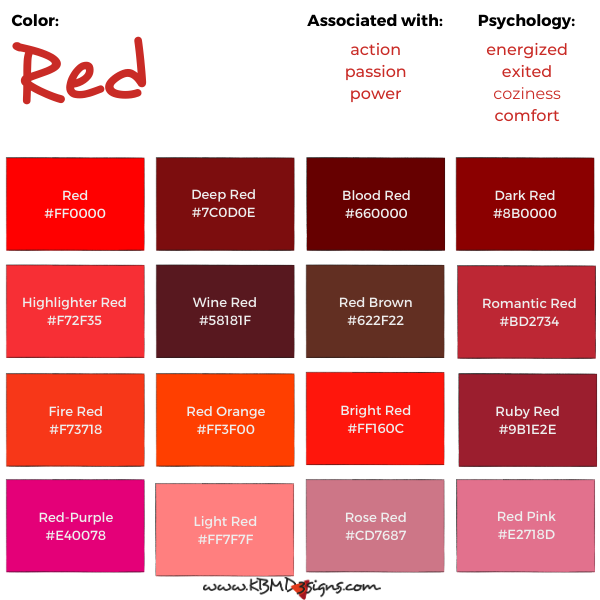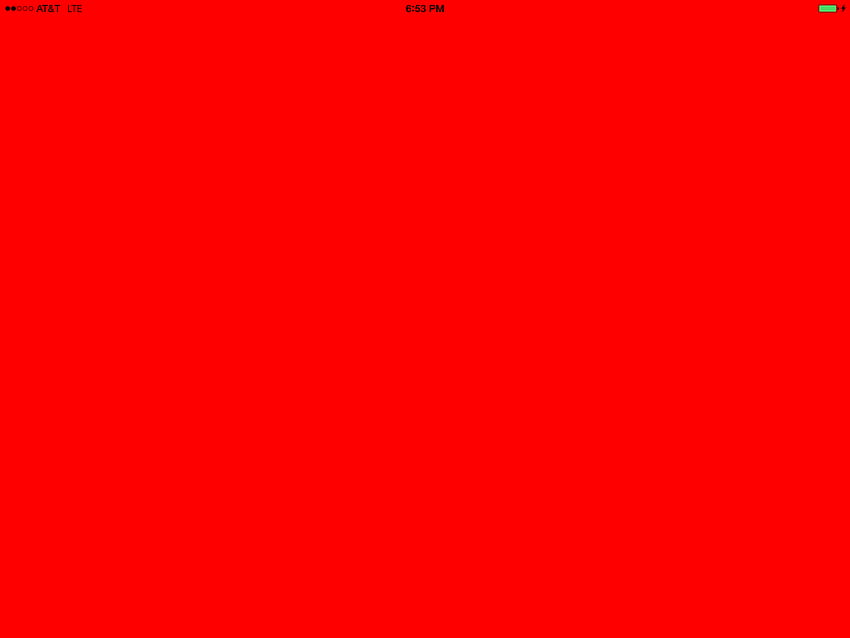Red Bull Israel: Unraveling The Boycott Claims And Market Presence
In an era marked by heightened geopolitical tensions and increased public awareness, the spotlight on corporate affiliations and their presence in conflict-affected regions has never been brighter. Brands globally find themselves under scrutiny, with consumers often seeking to align their purchasing power with their ethical and political stances. Among the many companies caught in this intricate web of global discussions and calls for boycotts, Red Bull, the iconic energy drink giant, has frequently surfaced in debates concerning its operations and perceived ties to Israel.
This article aims to thoroughly explore the multifaceted connection between Red Bull and Israel, delving into the ongoing speculations, market dynamics, and the company's official posture. We will navigate the complexities of these discussions, providing a comprehensive overview that addresses common questions about Red Bull's presence in the Israeli market, its alleged support for the region, and the broader context of global boycott movements.
Table of Contents
- The Global Boycott Landscape and Red Bull's Position
- Red Bull's Presence in Israel: More Than Just Sales
- Unraveling Red Bull's Alleged Ties to Israel
- Market Dynamics: Competition vs. Political Affiliation
- Red Bull Israel: A Look at Operations and Marketing Shifts
- Red Bull's Global Identity and Corporate Stance
- Beyond the Headlines: Nuance in the Red Bull Israel Narrative
- Conclusion: Navigating the Complexities of Corporate Presence
The Global Boycott Landscape and Red Bull's Position
The call to boycott Israeli products or companies that support Israel has become a prominent topic of global discussion, particularly amidst ongoing crises in the region. Global discussions on boycotting Israeli products and supporting brands increase, with Muslims being urged even more by Islamic scholars to avoid Israeli brands, keeping in view the connection and significance of Masjid al-Aqsa with Islamic history. This widespread movement aims to exert economic pressure on entities perceived to be complicit in or benefiting from the Israeli occupation. In this charged atmosphere, many multinational corporations, including Red Bull, find their operations and affiliations scrutinized by a vigilant global consumer base.
The Call for Boycott: A Global Phenomenon
The concept of boycotting products as a form of protest is not new, but its reach and intensity have amplified significantly in the digital age. Social media platforms serve as powerful conduits for disseminating information, organizing campaigns, and influencing public opinion on a global scale. Consumers, increasingly conscious of ethical sourcing and corporate responsibility, are more inclined to support or shun brands based on their perceived political or social stances. The current geopolitical climate has intensified these calls, leading to widespread campaigns targeting companies with any perceived connection to Israel. For many, the act of boycotting is a direct way to express solidarity with the Palestinian cause and to pressure companies to re-evaluate their presence or partnerships in the region. This movement often highlights specific companies, urging consumers to make informed choices about where their money goes.
Red Bull and the BDS List: Separating Fact from Conjecture
A common question that arises in these discussions is, "Is Red Bull on the BDS list?" The Boycott, Divestment, Sanctions (BDS) movement is a Palestinian-led initiative promoting boycotts, divestments, and economic sanctions against Israel. Its official website lists specific companies and products it targets. When examining Red Bull, despite conjectures, there is insufficient concrete evidence to substantiate claims of direct involvement or alignment with Israel, apart from its presence in the country through product sales.
As of current information and public records, Red Bull, a global energy drink brand owned by Austria's Red Bull GmbH, has no verified evidence of any ties to Israel that would place it on the official BDS boycott list. The company's operations in Israel primarily revolve around product distribution and sales, which is a standard business practice for any multinational brand seeking to expand its market reach. While its products are sold in Israel, this commercial presence alone does not automatically equate to political support or alignment, especially when considering the company's Austrian origins and global distribution model. The question "Boycott safe Red Bull is boycott safe Red Bull" often arises from this lack of definitive evidence, suggesting that for many, Red Bull does not meet the criteria for a targeted boycott based on its corporate structure or explicit political endorsements.
- Amanda Bearse
- Konerak Sinthasomphone Death
- Janney Rivera Chiquis
- Edwin Garrett Moran
- Raw Stopper Web 023kristi Noem Before
Red Bull's Presence in Israel: More Than Just Sales
Despite facing a decline in its market share within Israel, Red Bull maintains an active presence in the region, extending beyond mere product distribution. Exploring the unraveled connection navigating Red Bull’s presence in Israel reveals a brand deeply engaged with its local consumer base. A glance at their official Instagram account, Red Bull Israel (@redbullil), provides compelling evidence of this engagement. With 9,622 followers, 84 following, and 1,113 posts, the account actively showcases product promotions, local events, and interactions with Israeli consumers. The bio, "העמוד הרשמי של רד בול ישראל. רד בול נותן לך כנפייים #givesyouwings" (The official page of Red Bull Israel. Red Bull gives you wings #givesyouwings), clearly indicates a dedicated local marketing effort.
This active digital footprint suggests that Red Bull's strategy in Israel involves more than just getting cans onto shelves. It includes localized marketing campaigns, sponsoring events, and engaging with the Israeli youth culture, much like it does in other markets worldwide. For instance, content might feature local athletes, extreme sports enthusiasts, or cultural events, demonstrating a commitment to building brand loyalty within the Israeli demographic. This level of engagement, while standard for a global brand, often becomes a point of contention for those advocating for boycotts, as it signifies a deeper integration into the local economy and society. The presence of Red Bull in Israel is undeniable, and the company's efforts to connect with its consumers there are clear through its digital platforms.
Unraveling Red Bull's Alleged Ties to Israel
One question that has sparked significant interest is whether Red Bull supports Israel. The company is facing scrutiny over its alleged ties to the region amidst ongoing speculation about corporate involvement. This speculation often stems from its market presence and the broader political climate rather than any explicit statements or actions by Red Bull itself. The core of the debate lies in distinguishing between a company operating in a country and a company actively endorsing or supporting a government's policies. Red Bull, one of the world's most popular energy drink brands, has been at the center of debates and discussions over its corporate policies and affiliations.
If you are wondering whether or not Red Bull is an Israeli company, the answer is clear: Red Bull is a brand of energy drinks created and owned by the Austrian company Red Bull GmbH. Since its launch in 1987, more than 100 billion cans of Red Bull have been sold worldwide, including over 12.6 billion in 2024. This global reach underscores its identity as a multinational corporation with headquarters in Austria, not Israel. The "alleged ties" often refer to the economic benefit derived from sales within Israel, which, for critics, constitutes a form of support. However, Red Bull's official stance on political matters remains unstated, and definitive proof of alignment is absent. The landscape surrounding Red Bull and its activities in Israel is nuanced. The question of whether Red Bull supports Israel is, at present, a matter of conjecture for many, as public perception and online discourse shape the narrative.
Market Dynamics: Competition vs. Political Affiliation
The challenges faced by Red Bull in the Israeli market seem rooted more in competition rather than explicit political affiliations. While the backdrop of global boycott calls is significant, the commercial realities of the energy drink sector in Israel play a crucial role in Red Bull's performance there. The market for energy drinks is highly competitive, with numerous local and international brands vying for consumer attention and market share. This competitive landscape can naturally lead to fluctuations in a brand's performance, independent of political considerations.
Reports indicate that Red Bull has been facing a decline in its market share within Israel. This decline could be attributed to various factors, including the emergence of strong local competitors, aggressive marketing by rival international brands, changing consumer preferences, or pricing strategies. In a notable development, the biggest Israel importer of energy drink stopped selling it, claiming political discrimination. However, Red Bull denies these accusations, stating that the origin of the dispute is financial. This specific incident highlights how commercial disagreements can sometimes be framed within a political context, even if the underlying issues are purely business-related. The company's official position consistently points to financial or competitive reasons for market shifts, rather than acknowledging any direct impact from political boycotts, though the latter certainly contributes to public scrutiny.
Red Bull Israel: A Look at Operations and Marketing Shifts
The operational footprint of Red Bull in Israel offers further insights into its presence and the challenges it faces. Red Bull (Israel) Ltd, located in Rishon Lezion, Central District, is the local entity responsible for the brand's activities. Business insights and financial data for Red Bull (Israel) Ltd can be obtained from sources like Dun & Bradstreet, providing a clearer picture of its corporate structure and financial health within the country. This local entity manages distribution, marketing, and sales, ensuring the product reaches consumers across Israel.
From Market Share Decline to Operational Downsizing
A significant development concerning Red Bull Israel's operations is the decision by the Austrian company Red Bull GmbH to terminate its marketing activity in Israel and downsize Red Bull Israel to a minimum. This move is directly attributed to the ongoing decline in the energy drink brand's market share. Such a decision, while impacting the company's local presence and potentially its visibility, is presented as a strategic business response to market performance rather than a reaction to political pressure or boycott calls. Downsizing marketing operations and reducing staff are common corporate measures when a market underperforms. This financial rationale is consistent with Red Bull's denial of accusations regarding political discrimination, reiterating that the dispute's origin is financial. This operational adjustment signifies a strategic recalibration for Red Bull Israel, aiming to optimize resources in a challenging market environment.
The Local Face: Red Bull Israel's Digital Footprint
Despite the operational downsizing, Red Bull Israel maintains a visible digital footprint, particularly through its Instagram account. As mentioned, @redbullil continues to engage with consumers, showcasing product promotions and local content. This digital presence is crucial for brand visibility and maintaining consumer connection, even with reduced traditional marketing activities. The content often highlights various activities within Israel, such as surfing at Hilton Beach in Tel Aviv, exploring the Old City in Jerusalem, visiting the separation wall in the West Bank, and surfing in the coastal town of Old Jaffa. These activities, while part of Red Bull's global strategy to associate with extreme sports and adventure, also reflect a nuanced engagement with the Israeli landscape and culture. The Red Bull racers latest and other similar content like "Red Bull Tyne Ride 3 August 2024 Quayside, Newcastle" demonstrate the brand's consistent global marketing approach applied locally. This localized content, even if part of a broader global template, inherently connects the brand to the region, making it a focal point in discussions about its presence.
Red Bull's Global Identity and Corporate Stance
Red Bull's identity as a global powerhouse in the energy drink market is firmly rooted in its Austrian origins. It is a brand of energy drinks created and owned by the Austrian company Red Bull GmbH. This foundational fact is crucial when discussing its international operations, including its presence in Israel. The company's business model is built on global expansion, aiming to make its product available in as many markets as possible, regardless of geopolitical complexities. Since its launch in 1987, more than 100 billion cans of Red Bull have been sold worldwide, including over 12.6 billion in 2024, illustrating its massive global reach and success.
The company's official stance on political matters remains unstated. Like many multinational corporations, Red Bull generally adheres to a policy of political neutrality, focusing solely on its commercial objectives. This approach is common among global brands that operate in diverse and politically sensitive regions, as taking an explicit political stance could alienate significant portions of their consumer base or create diplomatic complications. Therefore, while its products are sold in Israel, this commercial activity does not imply a political endorsement of the Israeli government or its policies. The company's primary objective is to market and sell its energy drink, and its presence in Israel is a reflection of its global market strategy rather than a political statement.
Beyond the Headlines: Nuance in the Red Bull Israel Narrative
The landscape surrounding Red Bull and its activities in Israel is undeniably nuanced. While the company's official stance on political matters remains unstated, and definitive proof of alignment with Israeli government policies is absent, the brand's presence is undeniable. This presence, characterized by product sales, local marketing efforts, and engagement with Israeli consumers, naturally places Red Bull within the broader discourse concerning corporate involvement in the region. Israel, as a country with a complex political and economic situation, attracts support from a range of international actors, and its largest city, Jerusalem, plays a central role in the region, enjoying significant backing from both local and foreign entities. This context means that any significant international brand operating there will inevitably be drawn into public discussions.
Furthermore, the question of whether Red Bull supports Israel is, at present, a matter of conjecture for many, as public perception and online discourse heavily shape the narrative. For those advocating boycotts, the mere act of conducting business in Israel, and thereby contributing to its economy, is seen as a form of support. Conversely, for Red Bull, its operations are purely commercial, driven by market demand and the goal of global distribution. The challenge lies in reconciling these two perspectives. A BDS guide to supporting innocent Palestinians and boycotting Israel for its illegal occupation, as published by "The Witness," exemplifies the framework through which many consumers evaluate corporate ties. Understanding Red Bull Israel requires looking beyond simplistic "yes" or "no" answers and appreciating the intricate interplay of business strategy, geopolitical realities, and consumer activism.
Conclusion: Navigating the Complexities of Corporate Presence
In conclusion, the debate surrounding "Red Bull Israel" is a microcosm of the broader global discussion on corporate responsibility and ethical consumerism. While Red Bull maintains a clear commercial presence in Israel, evidenced by its product sales, local marketing, and active social media engagement, concrete evidence linking the Austrian-owned company to direct political support for Israel remains unsubstantiated. The challenges Red Bull faces in the Israeli market appear to be primarily rooted in competitive dynamics and market share decline, leading to strategic operational adjustments like the termination of marketing activities and downsizing of Red Bull Israel.
The question of whether Red Bull supports Israel largely remains a matter of interpretation, shaped by public perception and the ongoing geopolitical context. For consumers navigating these complex waters, understanding the distinction between a company's commercial operations in a country and its explicit political affiliations is crucial. As discussions continue to evolve, it is vital for individuals to seek out verified information and consider the nuances of corporate presence in politically sensitive regions. We encourage you to share your thoughts on this topic in the comments below and explore other articles on our site that delve into the intricate relationship between global brands and their international operations. Your informed perspective contributes to a more comprehensive understanding of these critical issues.



Detail Author:
- Name : Mr. Donnie Kertzmann II
- Username : daniel.martine
- Email : randal59@sanford.com
- Birthdate : 2000-07-26
- Address : 50956 Jimmie Port Suite 307 West Michael, NH 94525-4063
- Phone : 463-291-0300
- Company : Brakus-Barton
- Job : Travel Guide
- Bio : Eligendi enim rem neque quidem libero dolores. Rerum distinctio sunt sed perspiciatis. Occaecati velit exercitationem consequatur rerum nostrum.
Socials
instagram:
- url : https://instagram.com/dmarquardt
- username : dmarquardt
- bio : Ut eos non quis eaque cumque. Ullam distinctio ut ut. Tempore eum delectus sunt temporibus et.
- followers : 746
- following : 1612
tiktok:
- url : https://tiktok.com/@dallasmarquardt
- username : dallasmarquardt
- bio : Dolore velit sunt commodi earum.
- followers : 1720
- following : 1707
linkedin:
- url : https://linkedin.com/in/dallas8968
- username : dallas8968
- bio : Nesciunt placeat nihil nihil et inventore aut.
- followers : 5005
- following : 875
twitter:
- url : https://twitter.com/dallas3186
- username : dallas3186
- bio : Natus saepe id et natus explicabo id. Culpa molestias voluptatem vel rerum sapiente. Molestiae animi consectetur doloribus repudiandae maxime neque.
- followers : 3827
- following : 41
facebook:
- url : https://facebook.com/dallas_marquardt
- username : dallas_marquardt
- bio : Itaque ad molestiae aut nemo cum assumenda dolores.
- followers : 5079
- following : 1906